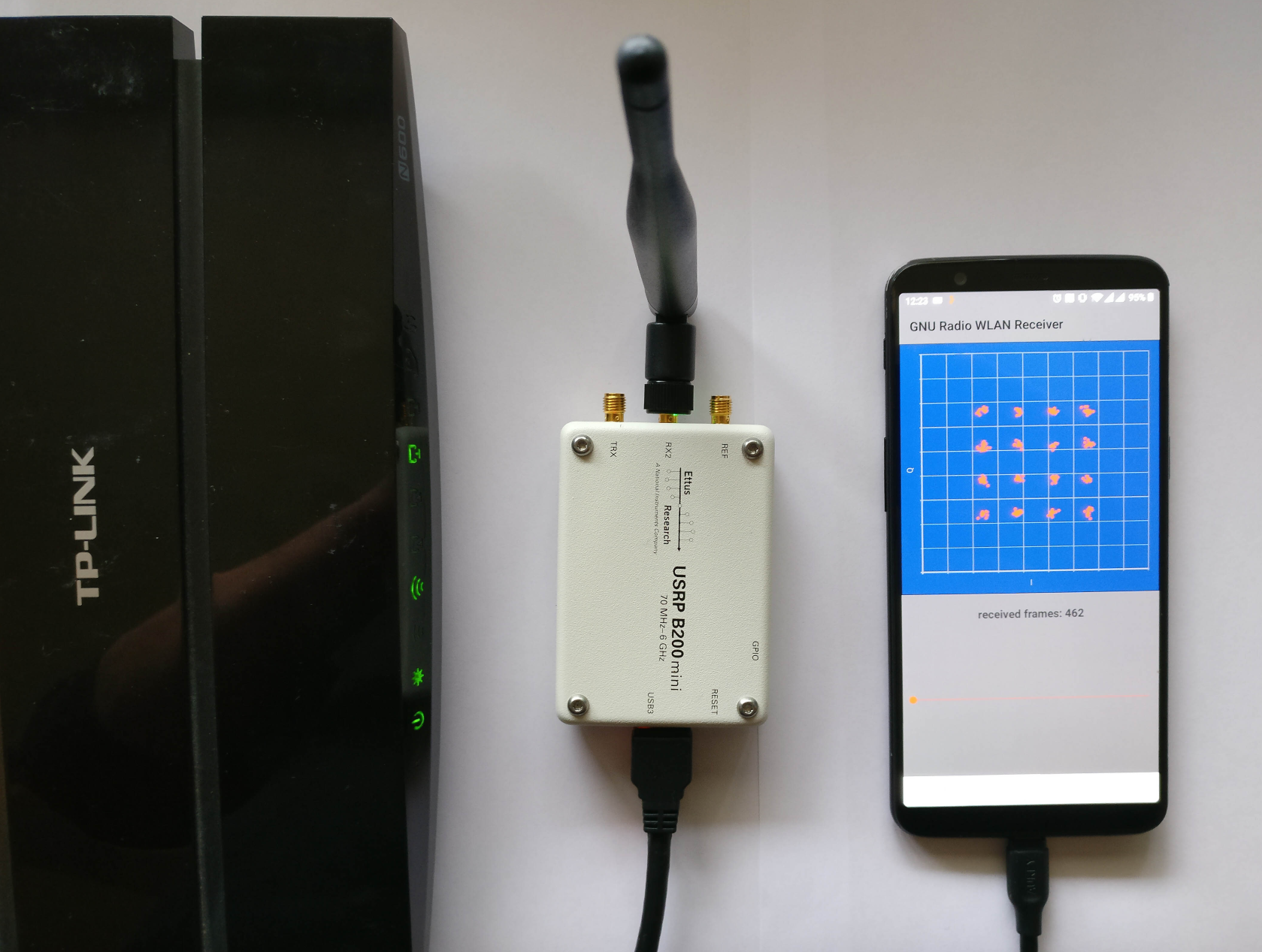GNU Radio on Android
Some months ago, I looked into Tom Rondeau’s work on running GNU Radio on Android. It took me quite some time to understand what was going, but I finally managed to put all pieces together and have GNU Radio running on my phone. A state-of-the-art real-time stream-data processing system and a comprehensive library of high-quality DSP blocks on my phone – that’s pretty cool. And once the toolchain is set up, it’s really easy to build SDR apps.
I put quite some work into the project, updated everything to the most recent version and added various new features and example applications. Here are some highlights of the current version:
- Supports the most recent version of GNU Radio (v3.8).
- Supports 32-bit and 64-bit ARM architectures (i.e.,
armeabi-v7aandarm64-v8a). - Supports popular hardware frontends (RTL-SDR, HackRF, and Ettus B2XX). Others can be added if there is interest.
- Supports interfacing Android hardware (mic, speaker, accelerometer, …) through gr-grand.
- Does not require to root the device.
- All signal processing happens in C++ domain.
- Provides various means to interact with a flowgraph from Java-domain (e.g., Control Port, PMTs, ZeroMQ, TCP/UDP).
- Comes with a custom GNU Radio double-mapped circular buffer implementation, using Android shared memory.
- Benefits from SIMD extensions through VOLK and comes with a profiling app for Android.
- Benefits from OpenCL through gr-clenabled.
- Includes an Android app to benchmark GNU Radio runtime, VOLK, and OpenCL.
- Includes example applications for WLAN and FM.
I think this is pretty complete. To demonstrate that it possible to run non-trivial projects on a phone, I added an Android version of my GNU Radio WLAN transceiver. If it runs in real-time depends, of course, on the processor, the bandwidth, etc.

Development Environment
The whole project is rather complex. To make it more accessible and hopefully more maintainable, I
created a git repository with build scripts for the toolchain. It includes GNU Radio and all its dependencies as submodules pointing (if necessary) to patched versions of the library.
created a
Dockerfilethat can be used to setup a complete development environment in a container. It includes the toolchain, Android Studio, the required Android SDKs, and example applications.
The project is now available on GitHub.
It was a major effort to put everything together, cleanup the code, and add some documentation. There might be rough edges, but I’m happy to help and look forward to feedback.
If you’re using the GNU Radio Android toolchain in your work, I’d appreciate a reference to:
-
 Bastian Bloessl, Lars Baumgärtner and Matthias Hollick, “Hardware-Accelerated Real-Time Stream Data Processing on Android with GNU Radio,” Proceedings of 14th International Workshop on Wireless Network Testbeds, Experimental evaluation and Characterization (WiNTECH’20), London, UK, September 2020.
[DOI, BibTeX, PDF and Details…]
Bastian Bloessl, Lars Baumgärtner and Matthias Hollick, “Hardware-Accelerated Real-Time Stream Data Processing on Android with GNU Radio,” Proceedings of 14th International Workshop on Wireless Network Testbeds, Experimental evaluation and Characterization (WiNTECH’20), London, UK, September 2020.
[DOI, BibTeX, PDF and Details…]
